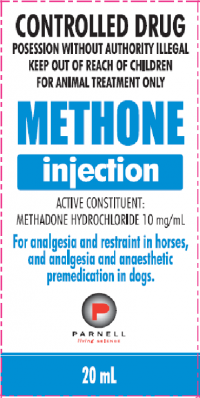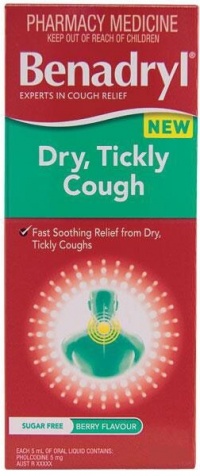
Why is GRV making us do this?
This is a national rule that is important to improve the integrity of racing and welfare of greyhounds. Similar rules already existed in Tasmania and other codes.
Participants are advised that as of the 1st January 2014 the provisions of the new rule GAR 84A will make it compulsory for accurate treatment records to be kept for greyhounds in a participant’s care.
The rule has been introduced to target the administration of substances that can return a positive swab, with the ultimate aim to reduce positive readings to therapeutic substances and to improve kennel medication practices. This new rule combined with major changes to other rules related to prohibited substances will provide a significant advantage to the Integrity Department during the investigation of positive swabs and other drug related investigations.
Do I have to use the GRV Treatment Record Book?
No, provided you record the relevant requirements listed in GAR84A.
Methods of record keeping may vary between trainers depending on the size of the operation so provided the required details as specified in GAR84A are entered for each treatment, the person in charge of a greyhound (e.g. the trainer) may keep this record in any format they desire. This may include GRVs Treatment Record Book (available online under the “PARTICIPANTS” tab at www.grv.org.au), digital computer file (e.g. GRV Microsoft Excel version also available online) or a diary. Where a trainer’s record keeping is found to be inadequate the Controlling Body may require that trainer to use a prescribed format. Please note, in the event of a positive swab or prohibited substance investigation, your treatment record may be taken and copied as part of the investigation.
We share kennels; can we share a treatment record between us?
No. GRV treats each trainer as a separate entity. For example, each trainer gets a travel subsidy regardless of whether they come from the same kennel address. Therefore one treatment record is required per trainer.
Which dogs do I have to keep records for?
Greyhounds between 16 months and retirement from racing.
Under this rule stewards will expect vaccinations, antiparasitics and medical treatments to be recorded for any greyhound older than 16 months of age until the greyhound is retired from racing; however trainers are encouraged to keep records of all greyhounds under their care. Additional record keeping may be required in order to comply with the Department of Environment and Primary Industries Code of Practice for the Operation of Greyhound Establishments introduced in 2005.
If I sell or move a greyhound to another kennel do I need to send the treatment record with the greyhound?
There is no requirement but you may wish to provide a copy. The original record should stay with you for at least 2 years.
Under the rule the person in charge must keep the record until the greyhound leaves their care and for a minimum of two years. Therefore the record should stay with the trainer that administered the substance. In the event of a positive sample to a substance with a long withholding period being detected, Stewards may investigate the previous trainer’s records if warranted. As a new owner you may wish to know this information and could request this from the original owner/trainer.
Do I need to carry my book everywhere?
No, Stewards expect it will be kept at the kennels of the trainer.
Do I need to keep a record of vaccinations under this rule?
Not when GRV already has a record.
Where a treatment is already recorded by the Controlling body such as the compulsory vaccinations required for naming there is no requirement for the trainer to duplicate this record, however trainers may do so. Additional record keeping may be required in order to comply with Agriculture Victoria’s Code of Practice for the Operation of Greyhound Establishments introduced in 2005.
Do I need to keep a record of any treatment that is given by the On-track Veterinarian to my dog following a race?
No, as GRV already has a record.
Where a treatment is already recorded by the Controlling body such as any treatment provided by the On-track Veterinarian as part of the race meeting (i.e. first-aid) there is no requirement for the trainer to duplicate this record, however trainers may do so. This information will be listed on the trainers copy given to the handler of the greyhound following treatment.
Do I need to record every day I give a tablet?
No, duration of treatment is sufficient for courses or ongoing medication.
Where a treatment is ongoing e.g. oestrus suppression, or where it is for several days e.g. a course of antibiotics, it is acceptable to list the start and finish dates of the treatment or the duration of the treatment (e.g. “5 days” or “ongoing”) rather than record every day a treatment is given.
Do I need to get the vet to sign the treatment record?
No, just print the authorising vets name in the case of prescription drugs.
In the case of a treatment being administered or prescribed by a veterinary surgeon, there is no requirement for the vet to sign the treatment record. The trainer can simply transcribe the details of the treatment into their records or use the invoice and keep them in a folder providing this is adequately detailed and meets the requirements of GAR84A.
What is a Schedule 8 medicine?
A “Controlled Drug”.
At the top of the medicine container the words “Controlled Drug” will be written. Possession without authority is illegal. These substances are also Permanently Banned Prohibited Substances under GAR 79A, however some are excepted from this rule as listed in GAR79A (6) when administered by a Veterinary Surgeon for pain relief, sedation or anaesthesia.
What is a Schedule 4 medicine?
A “Prescription Animal Remedy” or a “Prescription Only Medicine”.
At the top of the medicine container the words “Prescription Animal Remedy” will be written for any APVMA registered animal product that requires a prescription from a Veterinary Surgeon in order to be dispensed. A Veterinary Surgeon can also prescribe a TGA registered human product and it will contain the words “Prescription Only Medicine” on its packaging. These must be labelled by the Veterinary Surgeon or Pharmacist when dispensing for treatment of a patient under the care of the Veterinary Surgeon who prescribed that substance after taking all reasonable steps to ensure a therapeutic need existed for that substance.
What is a Schedule 3 medicine?
A “Pharmacist Only Medicine”.
At the top of the medicine container the words “Pharmacist Only Medicine” will be written for these human products. The pharmacist must dispense these medicines, which are generally located behind the counter in a pharmacy.
What is a Schedule 2 medicine?
A “Pharmacy Medicine”.

At the top of the medicine container the words “Pharmacy Medicine” will be written for these human products. These are readily available over the counter in a pharmacy which has meant a number of positive swabs to these medicines – particularly cough suppressants. Participants are reminded they should seek vet
erinary advice prior to administering medicines to their greyhounds. Some medicines may be in multiple schedules depending on the strength or form of the medicine. To access the Poisons Standard (SUSMP – Standard for the Uniform Scheduling of Medicines and Poisons) online go to: http://www.tga.gov.au/industry/scheduling-poisons-standard.htm
I buy my prescription medicines in bulk, can I sell/give them to my friends?
No.The trainer would be prescribing to another animal (something that only a registered Veterinary Surgeon can do) and the vet is potentially breaching the relevant legislation and guidelines by prescribing without establishing a therapeutic need and supplying more medicine than is reasonable.
My vet prescribed me “x”, can I use it on all my animals?
It depends on the intentions of the vet when it was prescribed.
Refer to GAR84A 4b and 4c. Sub rule 4c may be more restrictive than initially planned and will be approached consistently by Stewards to allow a Veterinary Surgeon to prescribe according to their relevant commonwealth and state legislation and guidelines. In most instances it will be acceptable for a trainer to administer a Schedule 4 medicine to their greyhound as it was intended when prescribed to that trainer’s greyhound by the Veterinary Surgeon. This is on the proviso that the relevant legislation and guidelines are met by the Veterinary Surgeon and the greyhound/s are under the care of the Veterinary Surgeon who prescribed that substance after taking all reasonable steps to ensure a therapeutic need existed for that substance.
My vet prescribed me “x”, can I use it on other people’s animals?
No.Given the Schedule 4 medicine isn’t prescribed for that purpose (i.e. someone else’s dog) it can’t be done and is a breach of the relevant legislation.
Do I need to record multi-vitamins or minerals?
Generally no, unless it is in the form of an injectable veterinary medicine.
In most cases, vitamins and minerals don’t need to be recorded if they are given by mouth and don’t contain a prohibited substance. If you wish to err on the side of caution for substances you give regularly in feed, you may list this medication as “ongoing”. You must keep a record of any injectable veterinary medicines administered even if they are just ‘vitamins’.
Do I need to record every time I use a flea preventative or an all-wormer?
Yes. These antiparasitic products are readily detectable veterinary chemicals but are exempt under the rules from being prohibited substances. This requirement is aimed at improving kennel husbandry and medication practices across the whole industry. Additional record keeping are required in order to comply with Agriculture Victoria’s Code of Practice for the Operation of Greyhound Establishments introduced in 2005. This refers to all animals, particularly younger animals that may be more susceptible to parasites.

